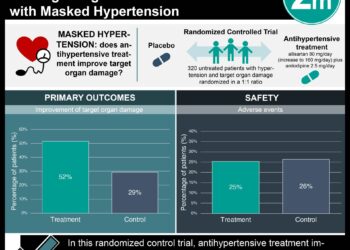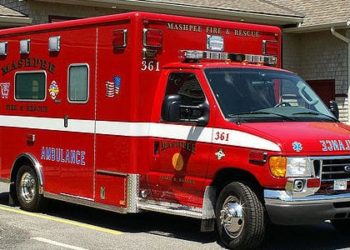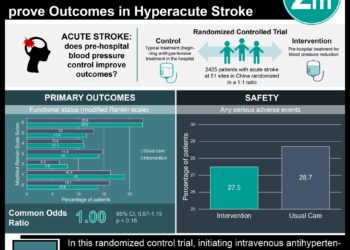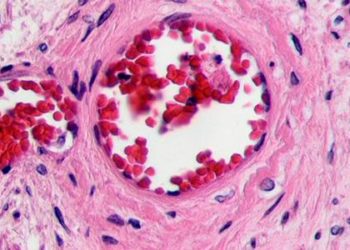#VisualAbstract: Thoracic endovascular aortic repair is not superior to medical therapy for acute uncomplicated type B aortic dissection
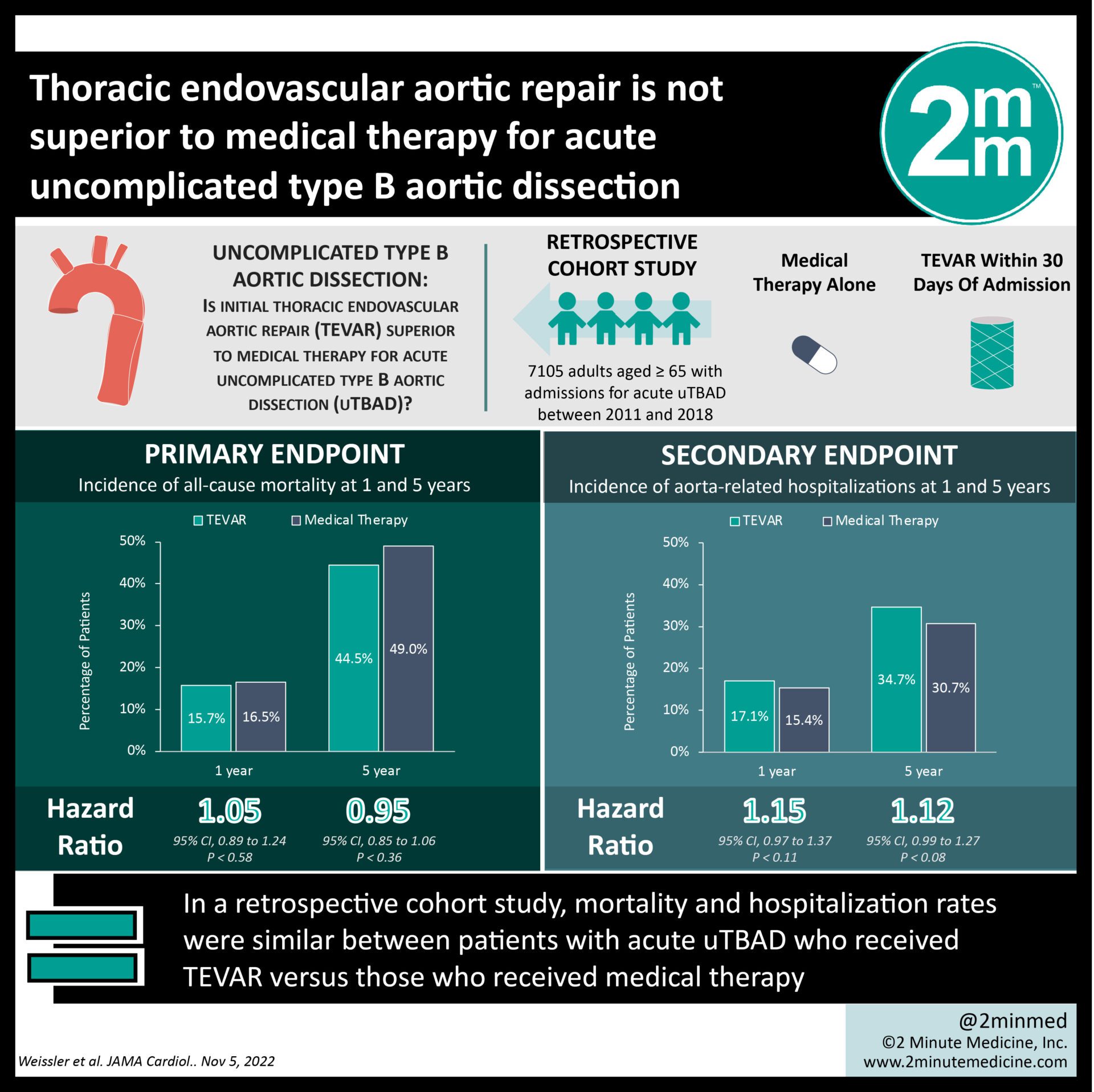 1. This retrospective cohort study examining thoracic endovascular aortic repair (TEVAR) versus medical therapy for uncomplicated type B aortic dissection found similar mortality and hospitalization rates between treatment groups.
1. This retrospective cohort study examining thoracic endovascular aortic repair (TEVAR) versus medical therapy for uncomplicated type B aortic dissection found similar mortality and hospitalization rates between treatment groups.
2. Approximately 16% of the study population received TEVAR; TEVAR receipt was significantly associated with younger age, the South region, hypertension, peripheral vascular disease, and the lack of congestive heart failure.
Evidence Rating Level: 2 (Good)
Study Rundown: Type B aortic dissection (TBAD) is a rare but potentially fatal pathology. Thoracic endovascular aortic repair (TEVAR) is the treatment for complicated TBAD; however, its role in treating uncomplicated TBAD (uTBAD) remains unclear, given that medical therapy may be sufficient. This retrospective cohort study assessed patterns of TEVAR use and examined outcomes between TEVAR and medical therapy for acute uTBAD. Patients 65 years and older with admission for acute uTBAD between 2011 and 2018 were included using the Centers for Medicare and Medicaid Services Limited Data Set. The primary exposure was initial TEVAR, which was defined as receiving the procedure within 30 days of admission. The primary outcome was all-cause mortality. Secondary outcomes included aorta-related hospitalizations, aortic interventions, and cardiovascular hospitalizations. Among the 7105 patients included in the study, 1140 (16%) received TEVAR. Receipt of TEVAR was significantly associated with age (each additional year older reduced risk) and region (South associated with greater risk of TEVAR compared to Midwest and Northeast). Additionally, hypertension and peripheral vascular disease were associated with greater odds of TEVAR receipt. In the weighted analysis, receiving TEVAR was not significantly associated with reduced all-cause mortality at 1-year (HR: 1.05 [95% CI: 0.89-1.24]), 2-years (HR: 1.05 [95% CI: 0.99-1.14]), or 5-years (HR: 0.95 [95% CI: 0.85-1.06]) compared to medical therapy. Aorta-related hospitalization, aortic intervention, and cardiovascular intervention rates were also similar between those who received TEVAR and those who received medical therapy. Overall, this retrospective cohort study demonstrated that less than one-quarter of uTBAD patients received TEVAR and that TEVAR patterns appeared to be influenced by age and location. Additionally, mortality and hospitalization rates were similar between patients who received TEVAR and those who received medical therapy. However, this study was limited by only including patients with fee-for-service coverage; therefore, the results may not apply to the entire uTBAD population.
Click to read the study in JAMA Cardiology
Click to read an accompanying editorial in JAMA Cardiology
©2022 2 Minute Medicine, Inc. All rights reserved. No works may be reproduced without expressed written consent from 2 Minute Medicine, Inc. Inquire about licensing here. No article should be construed as medical advice and is not intended as such by the authors or by 2 Minute Medicine, Inc.

